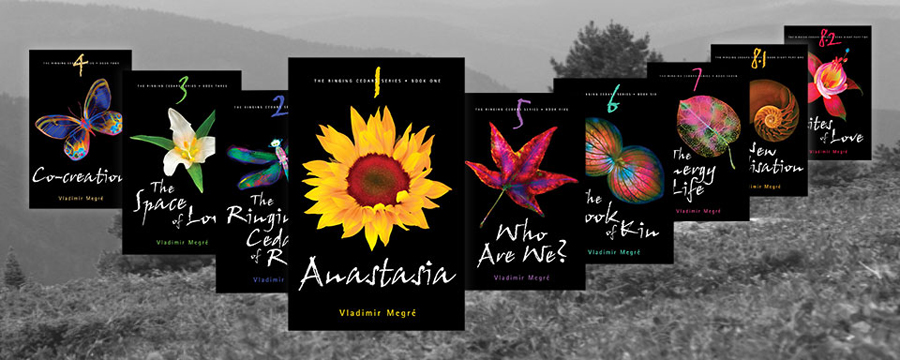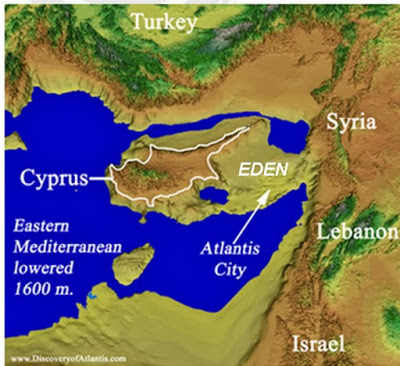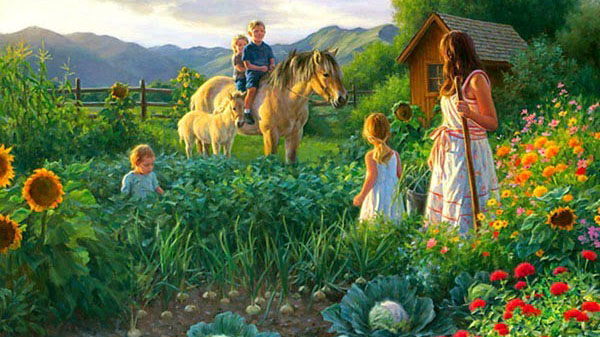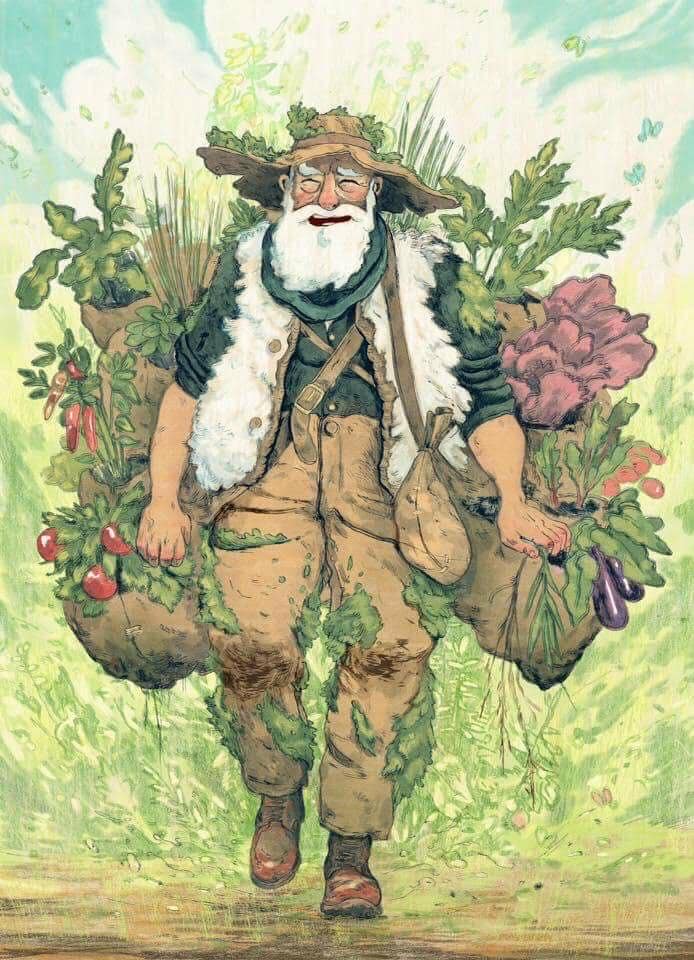The Family
68:2.8 (765.5) Almost everything of lasting value in civilization has its roots in the family. The family was the first successful peace group, the man and woman learning how to adjust their antagonisms while at the same time teaching the pursuits of peace to their children.
82:0.2 (913.2) While religious, social, and educational institutions are all essential to the survival of cultural civilization, the family is the master civilizer. A child learns most of the essentials of life from his family and the neighbors.
84:0.1 (931.1) MATERIAL necessity founded marriage, sex hunger embellished it, religion sanctioned and exalted it, the state demanded and regulated it, while in later times evolving love is beginning to justify and glorify marriage as the ancestor and creator of civilization’s most useful and sublime institution, the home. And home building should be the center and essence of all educational effort.
84:0.2 (931.2) Marriage, home building, is largely a matter of self-maintenance, and it implies the evolution of society. Society itself is the aggregated structure of family units. Individuals are very temporary as planetary factors—only families are continuing agencies in social evolution. The family is the channel through which the river of culture and knowledge flows from one generation to another.
The Garden
49:4.5 (564.7) Seasons and temperature variations occur on all sunlighted and sun-heated planets. Agriculture is universal on all atmospheric worlds; tilling the soil is the one pursuit that is common to the advancing races of all such planets.
68:5.9 (769.1) The agricultural stage. This era was brought about by the domestication of plants, and it represents the highest type of material civilization. Both Caligastia and Adam endeavored to teach horticulture and agriculture. Adam and Eve were gardeners, not shepherds, and gardening was an advanced culture in those days. The growing of plants exerts an ennobling influence on all races of mankind.
81:1.4 (900.6) Since slaves were so generally employed by the earlier agriculturists, the farmer was formerly looked down on by both the hunter and the herder. For ages it was considered menial to till the soil; wherefore the idea that soil toil is a curse, whereas it is the greatest of all blessings.
Anastasia and the civilization she represents

“Anastasia“, the first book of the Ringing Cedars Series (10 books total), tells the story of entrepreneur Vladimir Megre’s trade trip to the Siberian taiga in 1995, where he witnessed incredible spiritual phenomena connected with sacred ‘ringing cedar’ trees. He spent three days with a woman named Anastasia who shared with him her unique outlook on subjects as diverse as gardening, child-rearing, healing, Nature, sexuality, religion and more. This wilderness experience transformed Vladimir so deeply that he abandoned his commercial plans and, penniless, went to Moscow to fulfil Anastasia’s request and write a book about the spiritual insights she so generously shared with him. True to her promise this life-changing book, once written, has become an international best-seller and has touched hearts of millions of people world-wide.
“The Space of Love“, the third book of the Ringing Cedars Series, describes author’s second visit to Anastasia. Rich with new revelations on natural child-rearing and alternative education, on the spiritual significance of breast-feeding and the meaning of ancient megaliths, it shows how each person’s thoughts can influence the destiny of the entire Earth and describes practical ways of putting Anastasia’s vision of happiness into practice. Megre shares his new outlook on education and children’s real creative potential after a visit to a school (Tekos School Russia) where pupils build their own campus and cover the ten-year Russian school programme in just two years. Complete with an account of an armed intrusion into Anastasia’s habitat, the book highlights the limitless power of Love and non-violence.
“The Book of Kin“, the sixth book of the Series, describes another visit by the author to Anastasia’s glade in the Siberian taiga and his conversations with his growing son, which cause him to take a new look at education, science, history, family and Nature. Through parables and revelatory dialogues and stories Anastasia then leads Vladimir Megre and the reader on a shocking re-discovery of the pages of humanity’s real history that have been distorted or kept secret for thousands of years. This knowledge sheds light on the causes of war, oppression and violence in the modern world and guides us in preserving the wisdom of our ancestors and passing it over to future generations.
1-Anastasia
2-Ringing Cedars of Russia
3-The Dimension of Love
4-Co-creation
5-Who Are We
6-The Family Book
7-The Energy of Life
8.1-The New Civilization
8.2-The New Civilization II – Rites of Love
10-Anasta
Tekos School Russia
Interview with the editor
- Each person must have his own homestead, his own dimension, in order to provide high-quality fresh nourishment.
- In his own dimension, a person must cultivate plants, preferably by his own hand, that bear fruit, those plants which he believes he will find delicious and healthful. In all, no more than three hundred types of perennial plants should be planted on a homestead.
- A person must wake up every morning and take a walk through the plot of his homestead, and if the desire arises, eat a fruit, or berry, or herb that has ripened at that moment.
- Your homestead must be located in an ecologically clean zone. It must be surrounded by the homesteads of like-minded people in the creation of native heavenly oases.
The Edenic ideal
84:7.8 (940.4) But the home as an institution, a partnership between one man and one woman, dates more specifically from the days of Dalamatia, about one-half million years ago, the monogamous practices of Andon and his immediate descendants having been abandoned long before. Family life, however, was not much to boast of before the days of the Nodites and the later Adamites. Adam and Eve exerted a lasting influence on all mankind; for the first time in the history of the world men and women were observed working side by side in the Garden. The Edenic ideal, the whole family as gardeners, was a new idea on Urantia.
Soil & Horticulture
50:4.3 (575.4) In the headquarters settlement on your world every human habitation was provided with abundance of land. Although the remote tribes continued in hunting and food foraging, the students and teachers in the Prince’s schools were all agriculturists and horticulturists. The time was about equally divided between the following pursuits:
- Physical labor. Cultivation of the soil, associated with home building and embellishment.
- Social activities. Play performances and cultural social groupings.
- Educational application. Individual instruction in connection with family-group teaching, supplemented by specialized class training.
- Vocational training. Schools of marriage and homemaking, the schools of art and craft training, and the classes for the training of teachers — secular, cultural, and religious.
- Spiritual culture. The teacher brotherhood, the enlightenment of childhood and youth groups, and the training of adopted native children as missionaries to their people.
66:7.19 (751.14) Mankind was not consigned to agricultural toil as the penalty of supposed sin. “In the sweat of your face shall you eat the fruit of the fields” was not a sentence of punishment pronounced because of man’s participation in the follies of the Lucifer rebellion under the leadership of the traitorous Caligastia. The cultivation of the soil is inherent in the establishment of an advancing civilization on the evolutionary worlds, and this injunction was the center of all teaching of the Planetary Prince and his staff throughout the three hundred thousand years which intervened between their arrival on Urantia and those tragic days when Caligastia threw in his lot with the rebel Lucifer. Work with the soil is not a curse; rather is it the highest blessing to all who are thus permitted to enjoy the most human of all human activities.
72:4.1 (812.3) … Agriculture and horticulture are also taught throughout the entire educational period on the extensive farms adjoining every local school.
46:7.2 (527.16) On Jerusem you will be amazed by the agricultural achievements of the wonderful spornagia. There the land is cultivated largely for aesthetic and ornamental effects. The spornagia are the landscape gardeners of the headquarters worlds, and they are both original and artistic in their treatment of the open spaces of Jerusem. They utilize both animals and numerous mechanical contrivances in the culture of the soil.
49:4.5 (564.7) Seasons and temperature variations occur on all sunlighted and sun-heated planets. Agriculture is universal on all atmospheric worlds; tilling the soil is the one pursuit that is common to the advancing races of all such planets.

Life in the Garden
73:3.5 (823.5) The mountains surrounding the Garden abounded in precious stones and metals, though these received very little attention. The dominant idea was to be the glorification of horticulture and the exaltation of agriculture.
74:7.1 (835.4) The children of Adam, except for four years’ attendance at the western schools, lived and worked in the “east of Eden.” They were trained intellectually until they were sixteen in accordance with the methods of the Jerusem schools. From sixteen to twenty they were taught in the Urantia schools at the other end of the Garden, serving there also as teachers in the lower grades.
74:7.2 (835.5) The entire purpose of the western school system of the Garden was socialization. The forenoon periods of recess were devoted to practical horticulture and agriculture, the afternoon periods to competitive play. The evenings were employed in social intercourse and the cultivation of personal friendships. Religious and sexual training were regarded as the province of the home, the duty of parents.
(835.6) 74:7.3 The teaching in these schools included instruction regarding:
1. Health and the care of the body.
2. The golden rule, the standard of social intercourse.
3. The relation of individual rights to group rights and community obligations.
4. History and culture of the various earth races.
5. Methods of advancing and improving world trade.
6. Co-ordination of conflicting duties and emotions.
7. The cultivation of play, humor, and competitive substitutes for physical fighting.
The Hunzas
autonomy, longevity and high density nutrients at 2500 meters
How to build garden forests:
“Life in Sintropy”
The Food Forest – 25 tons of food per hectare per year.



